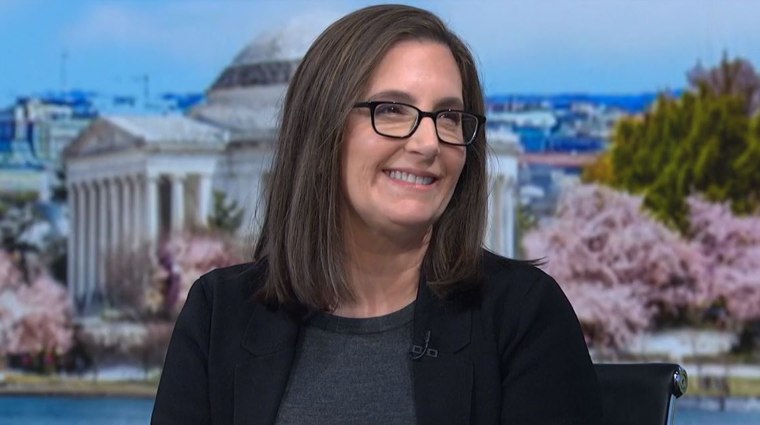Joyce White Vance doesn’t look or sound like someone who’s experienced much doubt in her career. After all, she spent 25 years trying difficult cases as a federal prosecutor before becoming the first female U.S. attorney nominated by President Barack Obama from 2009 to 2017.
But the path to get there wasn’t always easy. Vance recently spoke to Know Your Value about how she broke into a male-dominated industry, how she learned to advocate for herself, why women shouldn’t wait for a mentor to come to them and what your colleagues will remember about your maternity leave.
On establishing legitimacy in a male-dominated industry:
When Vance started her career as a federal prosecutor in 1991, there was only a handful of other women in her office. “But it was largely a male-dominated environment,” she said. So women “really had to feel your way, to establish your legitimacy, I think, by working harder than the guys did to prove you were entitled to be there.”
That wasn’t fair, of course, and it still isn’t today for the women who relate to that “gotta work harder than the men” feeling. Luckily, she was in an office that valued hard work. "You can slowly develop your legitimacy. But definitely women had to work harder to get there than men did," said Vance, who is now a law professor at the University of Alabama.
On the No. 1 mistake people make when asking to take time off:
Whether it’s maternity leave, a week’s vacation or simply a few days off, asking for some time away from work can be nerve-wracking in an always-on culture.
Vance recalled “feeling fairly powerless” as an employee asking for time off, but she came to realize that breaks are essential to continue doing good work. “Be fairly insistent about setting your boundaries so you can continue being a high performer," she said.
Now that Vance is on the other side of the desk, “I’ve never had a woman come in to say that they needed maternity leave, or some kind of personal time, without starting by apologizing,” she said. “Women need to really think about that when they walk into those situations and be fully aware of their value to the organization. Walk in as someone who’s secure in what they do, and who expects the organization to support their work and their life when necessary.”
On maternity leave, and how others will remember it:
One of Vance’s mentors, the federal judge in her office, recommended she take six months of maternity leave when she gave birth to her second baby. Vance initially protested, saying she couldn’t possibly take “that long” off from work.
As it turned out, Vance was forced to take an even longer leave of eight months when the baby was born with a heart defect.
The reason she shares that story, she said, is because “20 years later, if you asked the men in my office, ‘How long did Joyce take off on maternity leave' they’d say, ‘I don’t know. Six weeks?’… None of them remember I was out of the office for a full eight months. So I would always say that to encourage other women in my office to prioritize.”
On why you shouldn’t wait for a mentor to choose you:
Vance said she had no female federal prosecutor role models in her particular area, “so you did have to look at how the men conducted themselves” — but that really didn’t work for her. Instead, she turned to people like a woman in her office who had become a federal judge. Though their fields were a bit different, Vance said, they still had a lot to share about how to manage career and family, for example.
“The best thing you can do as a young woman is to find a good mentor,” said Vance. “It doesn’t have to be a woman. It’s great if it’s a woman, because she’ll more explicitly understand some of the issues that you deal with. But you don’t have to wait for a mentor to choose you.”
Instead, she said, find someone “in your orbit … You can just spend time, have coffee, see if that relationship will develop organically.” Explicitly asking “will you be my mentor” isn’t a requirement – but it can be effective too, she added.
